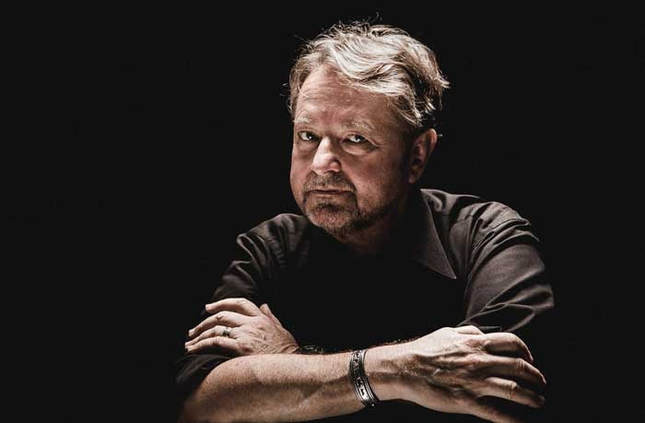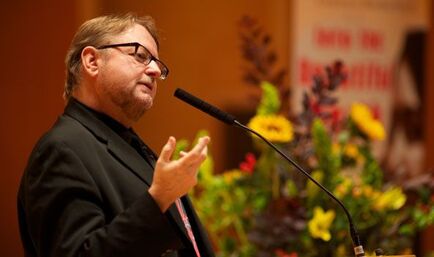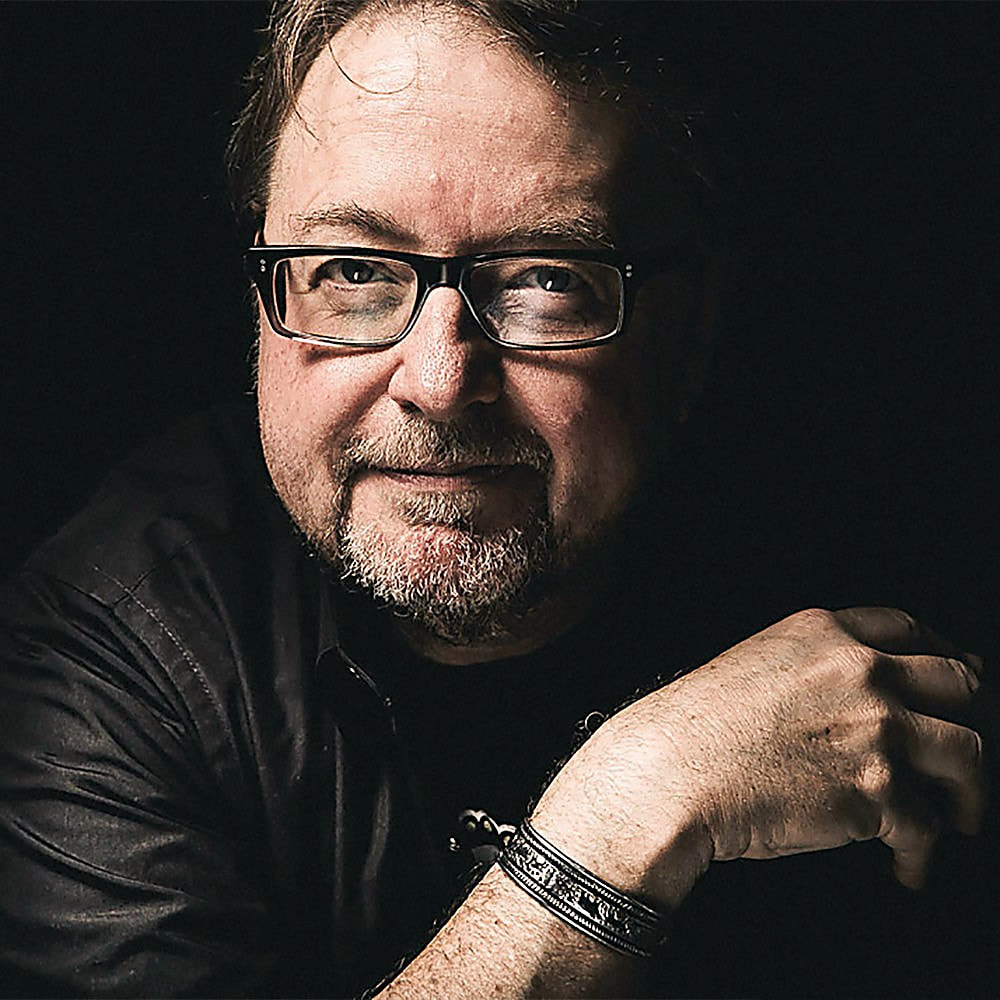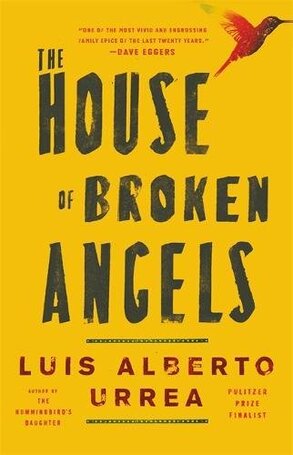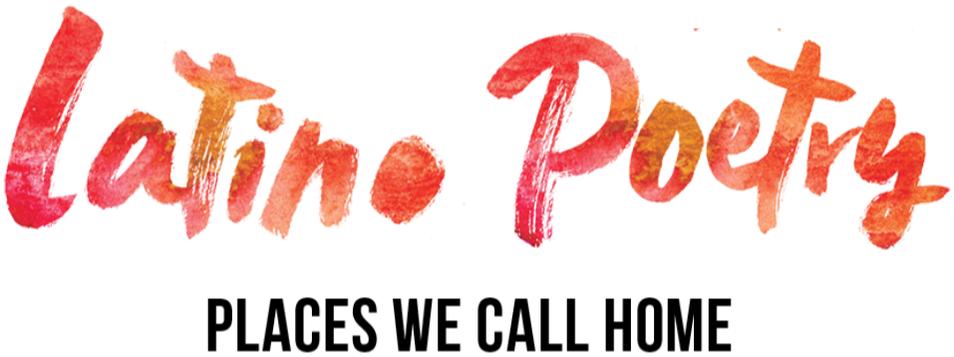Interview with Pulitzer Prize Finalist
Luis Alberto Urrea
Luis Alberto Urrea (Tijuana, Mexico) is a Pulitzer Prize Finalist for his landmark work of nonfiction The Devil's Highway. He is also the bestselling author of the novels The Hummingbird's Daughter, Into the Beautiful North, and Queen of America, as well as the story collections The Water Museum, a PEN/Faulkner Award finalist. He has won the Lannan Literary Award, an Edgar Award, and a 2017 American Academy of Arts and Letters Award in Literature, among many other honors.
GERALD PADILLA: Luis Alberto, it’s a pleasure to have you on Latino Book Review and congratulations on your upcoming book, The House of Broken Angels.
LUIS ALBERTO URREA: Thank you so much, mi gente! It means a lot to me to speak with you.
|
PADILLA: You were born in Tijuana, Mexico to a Mexican father and an American mother. It seems you were born between two nations and cultures, geographically as well as within your family. How did you navigate between these two worlds as a child?
URREA: I didn’t know any better. Didn’t everyone learn Spanish before they learned English? Didn’t everybody have a Mexican grandma who turned out to have Irish blood? Didn’t everybody’s mom have trouble learning how to cuss in Spanish? None of us are given a rule book or a template for what a family is, how identity works. We are what we are. I think that’s why it’s such a shock when the cabrones come after us. The culture clash really began when we moved out of Tijuana and settled in Barrio Logan and my parents immediately recreated the border inside our little apartment. |
Once they were not happy together, you could have parked a migra truck right in the kitchen. I have often said the kitchen was the US and the living room was pretty much Sinaloa. And that’s when I had to learn some pretty serious spy moves to get through the intrigues of that particular Cold War. And that extended into my general life in the US for a long time.
PADILLA: As a young author, what was some of the most valuable advice you received?
URREA: It was from Rudolfo Anaya. I was a bit in awe of him. But he immediately took on the role of some kind of tio and he told me something I have never forgotten. He said if you can make your abuelita in Tijuana the grandmother of some reader in Iowa, you have committed the most powerful of political and religious acts. I hear that small voice every time I work on a book or a story.
PADILLA: As a young author, what was some of the most valuable advice you received?
URREA: It was from Rudolfo Anaya. I was a bit in awe of him. But he immediately took on the role of some kind of tio and he told me something I have never forgotten. He said if you can make your abuelita in Tijuana the grandmother of some reader in Iowa, you have committed the most powerful of political and religious acts. I hear that small voice every time I work on a book or a story.
|
PADILLA: In an interview on UC Television, you stated that at the beginning of your career, a New York editor told you, “Nobody cares about starving Mexicans”. You were also told, at one point, that should change your name to an Anglo name so it wouldn’t sound so freakish. Despite all the cultural animosity, what motivated you to continue writing stories about Mexicans and Mexican Americans?
URREA: I have always been amazed that it seems to come as a shock to people that Mexicans are human beings. And on a philosophical level, I always remind interviewers that “the border” has nothing to do being Mexican or not. The border is simply a metaphor for what divides and wounds us as people – and I mean that “border” between any group of people, gay-straight, black-white, Muslim-Jewish, etc. Marginalized and oppressed people know full well that the border is not just that place the Border Patrol enforces. So my job is primarily to tell a true and good story about us. But I am also representing the ancestors and striking a blow for sacredness. I strive to force readers to love these characters I am creating. It is a subversive act. It is my responsibility, it is my honor. |
PADILLA: In 2005 you became a finalist for one of the most prestigious awards in the nation. How did it feel in a personal level to become a Pulitzer Prize Finalist?
URREA: It’s kind of funny, but one of my first thoughts was “I hope Tijuana is proud of me.” Although it sounds like faux modesty, this was one time that simply being a finalist was enough. It changed so much in my career. Though, of course, I invite them to go ahead and award me one next time!
PADILLA: In 2014 you gave a TEDx presentation in Alaska, where you spoke passionately about the dignity of Latin American children who come to the U.S. to seek refuge. What message would you give politicians whose decisions could help or hinder the lives of these children?
URREA: I am so much more angry now than I was for my TED talk. I don’t offer this as a cop-out to you, but I said it as clearly as I could in this new book. And we’ll see how people respond.
URREA: It’s kind of funny, but one of my first thoughts was “I hope Tijuana is proud of me.” Although it sounds like faux modesty, this was one time that simply being a finalist was enough. It changed so much in my career. Though, of course, I invite them to go ahead and award me one next time!
PADILLA: In 2014 you gave a TEDx presentation in Alaska, where you spoke passionately about the dignity of Latin American children who come to the U.S. to seek refuge. What message would you give politicians whose decisions could help or hinder the lives of these children?
URREA: I am so much more angry now than I was for my TED talk. I don’t offer this as a cop-out to you, but I said it as clearly as I could in this new book. And we’ll see how people respond.
|
PADILLA: Your upcoming book, The House of Broken Angels, is the epic story of an imperfect, humorous, bold, lionhearted, American family—“one that happens to speak Spanish.” It is also a story that was inspired by the death of your brother. How were you able to put such a deep and emotional part of your life into words and what drove you to do so?
URREA: I love my brother. I love my people. I knew that it was time for me to attempt a big “American family saga.” When I told the writer Jim Harrison the story of my brother’s death, he told me “Sometimes God hands you a novel. You’d better write it.” My wife, who watched the events fictionalized in the book, had been telling me something similar for quite a while. Yet I thought it was just too personal and particular to mean anything to readers. But I remembered Rudy and I realized this could be the most personally involving narrative for the reader that I could ever write. Finally, I will say that I had to go through many drafts and some hand-to-hand combat with my editor to change this from a fictionalized memoir to a universal story. I had in mind a novel, a great novel, a BIG novel, something more like a Russian novel or Mario Puzo’s The Godfather. It couldn’t just be folksy memories about my brother. That wasn’t the point. Through fiction, he had to become everyone’s brother. You can see how this potentially is quite revolutionary in the current political times we are enduring. PADILLA: You have come a long way since the beginning of your career. You have become an award winning, bestselling author and an inspiration to many Latino authors. What are your hopes for Latino literature in the near future? |
When you purchase a book through our site, we earn an affiliate commission and so do independent book stores.
|
URREA: You know how on Cinco de Mayo there is a table in the front of the bookstore with a couple of “Latino books?” You know how when you go into Barnes and Nobel, there is a shelf for “Hispanic” or “Latino” books? It’s down at the bottom, somewhere beyond gay literature, Native American, or Asian literature. My hope is that we prevail, that we show this culture what we already know. “Latino” literature IS American literature. We know something about “America” and we can remind them that “America” goes from Tierra del Fuego to the Arctic Circle. We are not a cute seasonal beer ad. We are not a vector for do-gooders to feel good about themselves. We are true artists. We are geniuses. We are here to stay. I’d like to see all of us right there on the literature shelf. Let our books stand against Jonathan Franzen or Ann Patchett or Ernest Hemingway. Let us enact the dictum of St. James Brown: “I don’t need nobody to give me nothing. Just open the door. I’ll get it myself.”
PADILLA: Thank you again Luis Alberto for taking the time to share with us at Latino Book Review.
URREA: It’s been an honor. Thank you for taking the time. Much love and respect.
PADILLA: Thank you again Luis Alberto for taking the time to share with us at Latino Book Review.
URREA: It’s been an honor. Thank you for taking the time. Much love and respect.
Comment Box is loading comments...
|
|

